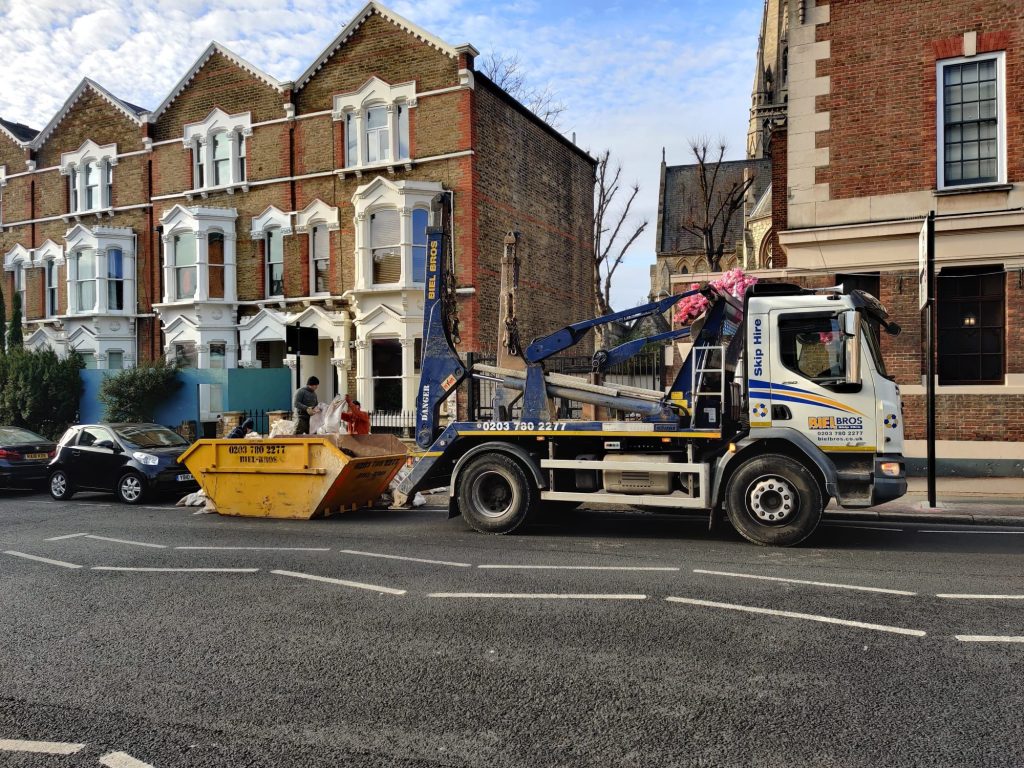Home » Waste Management Guides » Do I Need a Permit for a Skip? Everything You Need to Know
If you’re hiring a skip for the first time, one of the most common questions is whether you need a permit. The short answer? It depends on where you’re placing the skip.
This guide covers everything you need to know about skip hire permits in the UK — including when you need one, how much they cost, and how to get one.
You only need a permit if the skip is going to be placed on public land, such as:
If you’re placing the skip on your own private property — like a driveway, garden, or building site — you don’t need a permit.
Local councils require skip permits to ensure skips placed on public land don’t:
The permit system ensures safe, legal placement of skips and helps the council manage street usage.

In most cases, your skip hire company will arrange the permit for you as part of the booking process. This is the easiest and most common approach.
At Clearify, we handle all permit applications for our customers — no forms, no hassle.
Most local authorities require 3 to 5 working days to process a permit. In some cases, it can be quicker, but you should always allow extra time if you have a deadline for your project.
Top tip: If you’re booking a skip on short notice, let your provider know — they may suggest alternatives such as wait-and-load services to avoid permit delays.
The cost of a skip permit varies by local council, but you can expect to pay anywhere from £15 to £70, depending on:
Some councils charge extra for placing skips in permit-only parking bays, red routes, or areas requiring special safety measures (e.g. traffic cones or warning lights).
At Clearify, we’ll include the exact permit cost in your quote, so there are no surprises.
Most skip permits are valid for 7 to 14 days, but this varies depending on your council. If you need to keep the skip for longer, you may be able to extend the permit — but this usually comes with an additional fee.
Let your skip hire company know in advance if your project is likely to overrun.
Placing a skip on public land without a valid permit can result in:
To avoid penalties, always check whether you need a permit before your skip is delivered.
Yes — if you have access to private land like a driveway, you can avoid the permit process altogether. Just make sure:
Alternatively, consider a wait-and-load service. This involves the skip being delivered, filled quickly (usually within 30–60 minutes), and then taken away — without the need to leave it on public land.
| Skip Location | Permit Required? |
|---|---|
| Private driveway | No |
| Private garden/site | No |
| Public road or verge | Yes |
| Pavement or footpath | Yes |
At Clearify, we make skip hire simple. We’ll handle the permit paperwork for you, advise on the best skip size, and arrange fast delivery — whether you’ve got a driveway or need to use public land.
Not sure if you need a permit? Just ask — our team will guide you through it all.
Get a free quote today and we’ll take care of the rest.
Quick Links
SERVICES

Contact
Clearify is a trading name of MCS Waste Group Ltd.
2025 © Clearify